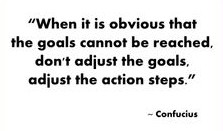Some of the most enjoyable moments during my years of teaching the Renaissance Business Planning Class were when past students came back to class to share their experiences and business advice. They would talk about their successes and also reveal their struggles and mistakes, and what they might have done differently. They would share how they improved their skills and their capacity to meet the business’ complexity, and also how it was a constant juggling act. Often, they stressed that “learning from doing” was a primary teacher. Their advice always had a profound impact on the students who were about to launch or expand enterprises of their own.
Here are some words of advice from small business owners (and past students) about tackling complex business issues, building on lessons learned and honing your management skills.

When Elizabeth Leu started Fiddlesticks, a children’s boutique in Hayes Valley, she thought she was prepared. She first worked for someone else and learned as much as she could about the retail business. Elizabeth also took the Renaissance Entrepreneurship Center Business Planning class.
She started her business with a solid foundation of hands-on experience, working for others, and thoughtful planning. Yet she couldn’t prepare herself for what it would actually feel like when she was completely responsible for her own business and all its complexities.
“As a small business owner, you have to be the master of all in everything you do, and that’s not easy. You have to wear ALL the hats and ideally, they should all fit. I think management capacity is finding the correct fit with all those hats — and that’s hard! It takes a lot of time and experience to get them all to fit.”
Elizabeth’s advice for small business owners:
LEARN AS MUCH AS YOU CAN ABOUT EVERY ROLE IN YOUR BUSINESS.
“You may love only a few of those hats but you have to figure out, master and tolerate them all — at least in the beginning until you can outsource. Once you get strong enough to outsource, you still need to understand how it all works to keep a watchful eye on the whole operation.”
STAY POSITIVE AND JUST KEEP GOING.
“I have worked very hard to grow my business and I have had some significant setbacks. With every setback I can either choose to learn from it or become bitter and harbor frustrations. I have worked hard to learn from them. All of the setbacks were complex and difficult, especially because it was uncharted territory for me. But I learned and I am still learning. What is it they say, ‘two steps forward, one step back’? As long as you move forward, business complexity feels easier because you keep breaking it down, tackling it piece by piece.

When Heidi and her partner Nate opened The American Grilled Cheese Kitchen they already had general business expertise, people management skills and financial management experience but they were new to the restaurant industry and lacked specific industry skills. Heidi and Nate’s approach was to be honest with themselves about their own abilities and get help. “We took a cold hard look at what we did and did not know how to do, and then we recruited advisers who could teach us, or hired staff who already had the skills we lacked.”
Heidi and Nate took a similar approach when opening their second location. They had never run a multi-unit operation before. They sought consulting from other multi-unit operators, and hired general managers for each store who had come from multi-unit backgrounds. “We tasked the managers in the stores with the responsibility of ensuring consistency across the stores, not just within their own. For us, hiring managers who brought experiences and skills to the table that we did not have ourselves was crucial.” With the added complexity of two locations, Heidi and Nate decided to outsource their bookkeeping, too. “We hired a bookkeeper who had deep experience with multi-unit restaurants, which brought more expertise to our operation and freed up our time to handle other issues.”
Heidi’s advice for other small business owners:
BE BRUTALLY HONEST ABOUT WHAT YOU ARE GOOD AT AND WHAT YOU’RE NOT.
“For the things you are not good at, find a way to outsource them to someone who is good at them. This goes double for bookkeeping and accounting if you are in a high-volume, low-margin business.”
ASK FOR HELP.
“There are a lot of resources out there for growing business owners, including Renaissance, SBDC, ICA and most importantly, other business owners. People want to see you succeed and you’ll be surprised at how much they want to help.”
DON’T SKIP FINANCIAL FORECASTING.
“Many small business owners underestimate their financial management needs and make mistakes with finances when starting or expanding a business. The worst-case scenario is running out of cash, and sometimes growing can really chew up cash. You’re in a much stronger position to secure financing before you run out of cash rather than waiting until you’re down to the wire. Take the time to forecast cash flow, accounting for your growth needs, and start investigating funding options early rather than late.”

Claire Keane, owner of the artisan, handcrafted sweet treats company Clairesquares, says that her business skills did not match the complexity of her business when she started. She had a steep learning curve. But Claire gained the skills she needed by seeking out specific business knowledge and support and her daily experiences in business brought many lessons learned.
Claire’s key steps for developing core business skills:
Write a business plan.
Claire took the 14-week Business Planning Class at the Renaissance Entrepreneurship Center and wrote a business plan. “To this day, I frequently remember key pointers from each class.”
Join an incubator.
Claire joined La Cocina’s Incubator Kitchen and received the help of that community and all their support services.
Attend lots of workshops.
Claire learned from others to increase her skills. “Whenever there was a workshop relevant to my lack of skills, I made sure to attend it. I was able to take tips from each training and apply it to my business immediately.”
Develop a support team.
Claire knew that she could not do it all alone. “It was very helpful to have a business mentor, new business friends with similar start-up business pains and other friends and family to lean on for advice to get me through the learning curve.”
Keep at it, even through failure.
Ultimately it has been Claire’s tenacity and her perseverance that has made her business a success. “No amount of workshops can prepare you for real world experience. In the end, I learned from trying, failing, and trying again.”
Check out these additional tips on balancing business skills with business complexity. What has worked for you and your business?











![IMG_0408[1] alone](http://www.paulterry.com/wp-content/uploads/2011/11/IMG_04081-e1321063195973-225x300.jpg) However, there IS one simple and successful support strategy that is free, motivational and really helpful from a practical perspective. This is a solution that will provide information, motivation, and access to resources. This is a solution you can develop without spending a lot of time and money on professional advisors and/or consultants.
However, there IS one simple and successful support strategy that is free, motivational and really helpful from a practical perspective. This is a solution that will provide information, motivation, and access to resources. This is a solution you can develop without spending a lot of time and money on professional advisors and/or consultants.